Kinkaku-ji, located in the northwestern part of Kyoto, is one of the most famous temples in the city. It’s also one of the most clearly recognizable sights, being covered in gold leaf.
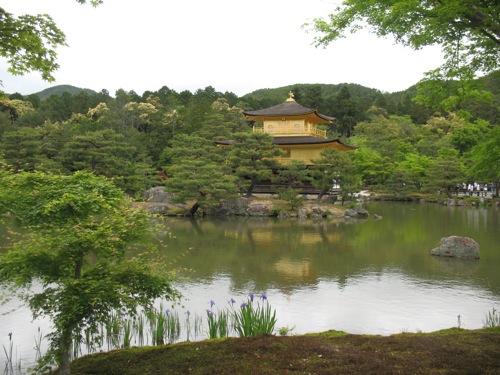
The Golden Pavilion (the translation of its name) is actually only one part of the temple complex, but it was definitely the main attraction on our- and apparently everyone else’s- visit. As with most of the sights, there were certain viewing locations that were a magnet for photographers; other locations were passed on by.
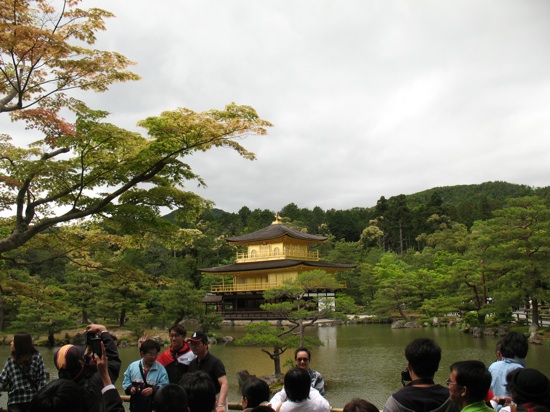
In contrast to Ginkaku-ji, Kinkaku-ji was actually bigger than I expected it to be. I was really not expecting a building covered in gold to be very large. I know I keep emphasizing the gold bit here, but it really was … shiny.
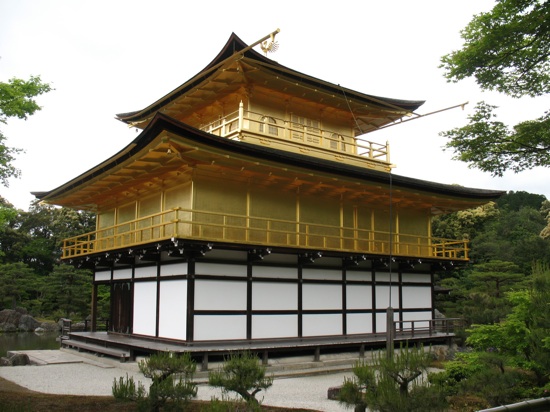
As with any important site in Kyoto, there were fairly large crowds. We’d read about something that happens occasionally at these sights that actually did happen here- apparently, English-language teachers will sometimes take small groups of schoolchildren to tourist sights to practice on them. This happened to me here, but not to Yan (perhaps the beard made him too intimidating or something). So I answered some standard questions (“What is your name?” “Where are you from?” “What is your favorite Japanese food?”), and was photographed with the girl asking them. It was kind of cute.
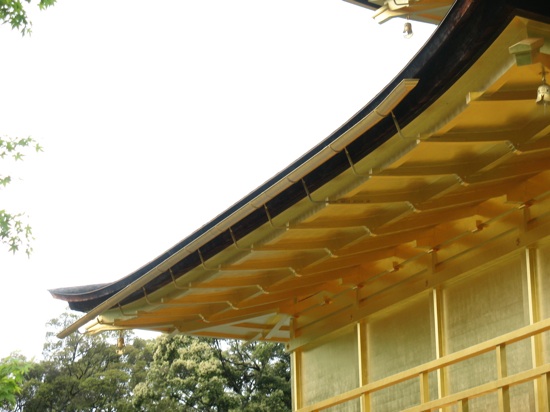
So back to the pavilion. Apparently, it was built by a shogun in the late 14th century/early 15th century, and turned into a Zen Buddhist temple after the shogun’s death. The original structure was destroyed by arson in 1950, so the present version is a replica. Gold has symbolic properties of purification. The pavilion is part of a garden complex that includes some very pretty landscaping, a few small shrines, and some larger buildings- a teahouse, several temple buildings, and (of course) several stands that sell charms, candles, and souvenirs. The complex as a whole is easily accessed by bus.
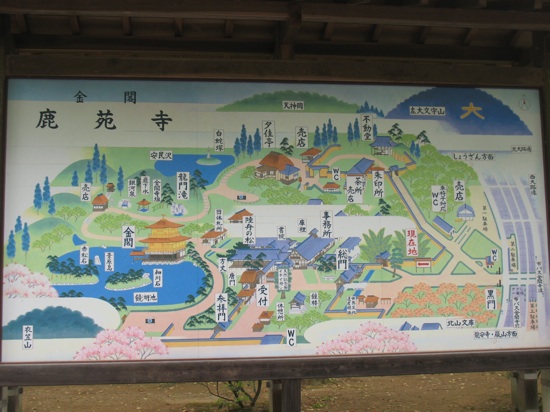
As with many of the gardens we visited, water was an important feature. In this garden, there were little streams and a few little waterfalls. This one had a feature called “carp rock,” because the large stone supposedly looks like a leaping fish.
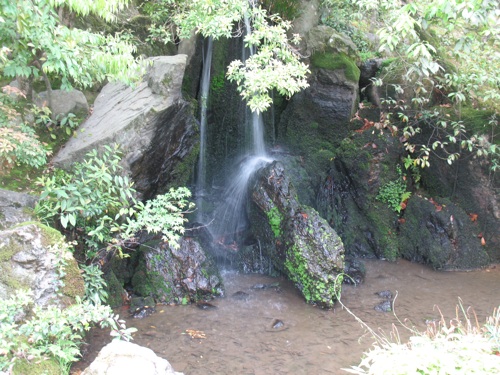
At the temple building where one leaves offerings, we lit a candle for family health. We also bought a few souvenirs: some postcards (which were surprisingly hard to find elsewhere), a charm, and some green tea mochi on a stick. Yum.
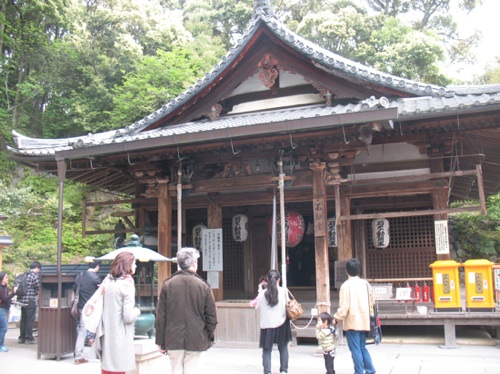
So this was definitely a cool sight to see. There was a nice garden to wander through, yummy snacks, and assorted souvenirs that ranged from sacred (charms for safe driving, good grades, family health, etc.) to …less so (Hello Kitty banners with Kinkaku-ji in the background).
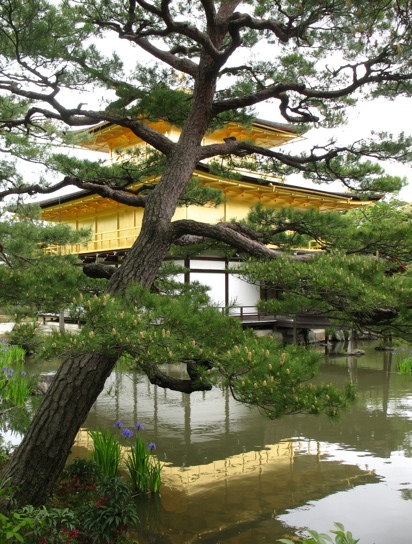
5 replies on “Kinkaku-ji”
This is one of my fav sites in Kyoto – very elegant and pristine.
Wow, such lovely photos! Looks amazing!
Thanks- it was pretty hard to take really bad photos there.
Osaka gang wonders why you never called!
Didn’t run into any problems.